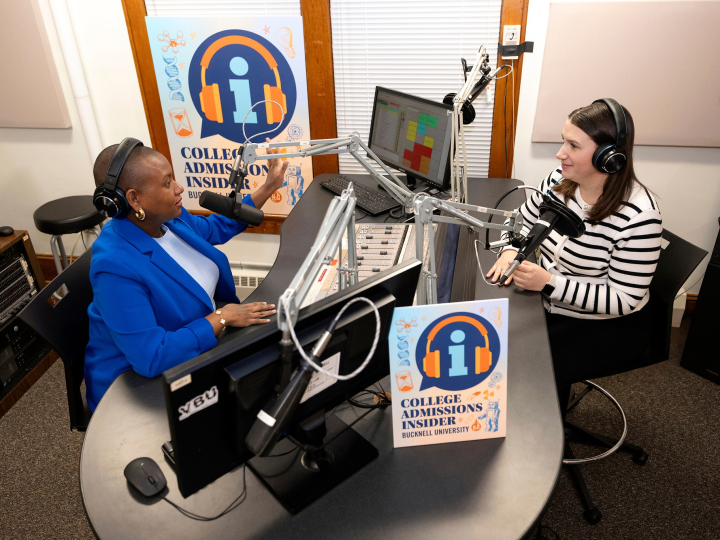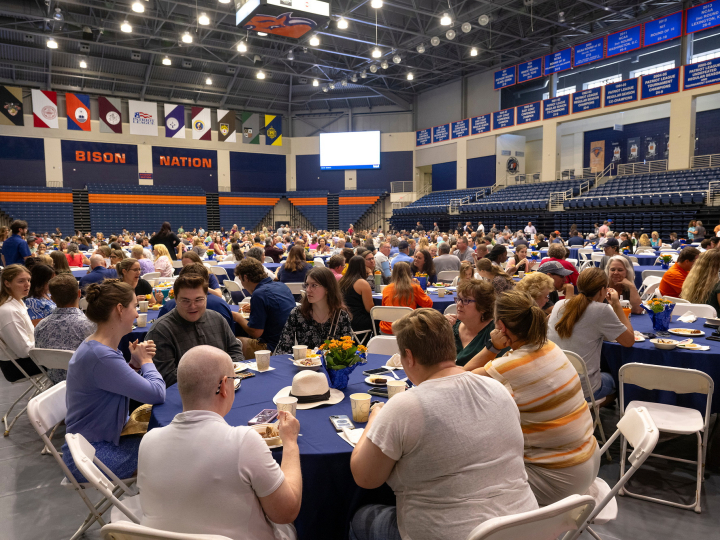
Game On
January 13, 2016
The world's most popular sport gains ground in the United States with a boost from Sunil Gulati '81.
The world's most popular sport gains ground in the United States with a boost from Sunil Gulati '81.
When the United States women's national team was jumping and cheering and doing all sorts of celebrating, having just won the World Cup in Vancouver, Canada, in July, there was, in their midst, a somewhat short and slight middle-aged man, just as happy as they were, though a bit more contained.
Sunil Gulati '81 has been president of the U.S. Soccer Federation, the national governing body of the sport, for the last decade. His hand is at the tiller, guiding the sport in an upward trajectory in the American consciousness.
"He's the single most important person in the development of soccer in this country," Alan Rothenberg, one of Gulati's predecessors as U.S. Soccer president and a founder of Major League Soccer, has told USA Today.
Gulati is modest and confident but well aware of the complexity and daunting nature of his mission. He knows that soccer is not nearly yet on a plane with baseball, basketball and football in the national sports scene, yet he is quick to point out each careful step the game is taking forward.
"We had an audience of 25 million-plus to watch the final of the women's World Cup. We won't achieve those numbers for anything but a World Cup, but the interest level in the game across the board is thriving dramatically," says Gulati. He hopes the interest in that World Cup final, in which the women’s team trounced Japan 5-2, will spur interest in both the women's and men’s professional leagues. "That is a sea change from what it was 20 to 25 years ago."
Twenty years ago, Gulati, now 56, was trying to figure out his career path. He had recently landed a job with the World Bank, which he admits would have been his dream when he graduated from Bucknell and then from graduate school at Columbia University.
He had just worked also, though, with the men's World Cup, hosted in 1994 by the United States, as the executive vice president of World Cup USA 1994. He had already taught economics at Columbia and been the liaison between Moldova, a former Soviet republic — then one of the poorest countries in Europe — and the World Bank, trying to reform Moldova’s lackluster economy. He was well on his way to a substantive career in economics, but he was also smitten by the world’s most popular game and those in U.S. Soccer appreciated his multifarious skills.
The tug of war for Gulati's soul was on and he was determined to find the winning solution.
Gulati is a clear representation of the face of 20th-century soccer in America. He arrived in the U.S. with his family from Allahabad, India, when he was 5. His father, an academic, had come to study and eventually teach mathematics in Connecticut.
As with many kids — especially first-generation immigrants — Gulati started intensely playing youth soccer. He claims now that he knew even then he had limited skills as a player but the patience to be a coach and organizer. By the time he was 12, he was coaching 5- and 6-year-olds. By high school, he and a friend had started a travel team.
"I was doing everything — playing, coaching and refereeing — as a kid," says Gulati. Eventually he got involved in what was basically an all-star team from Connecticut, then with an East Coast all-star team, similar to a national team, with junior players under the age of 17. "It just snowballed."
Gulati's office at Columbia, where his teaching specialty is economic development and international trade, is small and packed with soccer artifacts. There are framed, autographed jerseys — those from women’s team members Abby Wambach, the 35-year-old veteran and Alex Morgan, who appeared in a body-paint "bikini" for Sports Illustrated — close to his desk. There is a shelf with soccer balls from significant games and photos of international stadia.
There are also books indicative of a serious academic, from two copies of The Worldly Philosophers, a standard in 21st-century economic theory, to John F. Kennedy's Profiles in Courage. There are copies of Sports Business Journal and Michael Lewis' classic chronicle of sports statistical analysis, Moneyball, too.
Fittingly, Gulati came to Bucknell through a soccer connection. A player he knew in Connecticut was being recruited and told Gulati the campus was beautiful. Gulati visited and was impressed, so he applied early and got in. He was aware that his soccer talents on the field were limited. ("I think I played the most junior-varsity games ever at Bucknell," he says.) During his senior year, he turned back to his earlier interest and became an assistant coach for the varsity team under Craig Reynolds.
Gulati majored in economics and political science and graduated magna cum laude, going immediately to Columbia and, seemingly, leaving soccer behind. Yet each season he volunteered to do something with soccer, eventually connecting with the national organization in the mid-1980s.
At Columbia and the World Bank, Gulati found accommodating bosses and mentors who allowed him to stoke his passion for involvement with soccer. His dream to work for the World Bank had come true, but then, like many dreams, it had a trail leading away.
"Two things had changed along the way: I had fallen in love with soccer and I had fallen in love with teaching," says Gulati. He could have left soccer after working with the 1994 World Cup, but individuals associated with U.S. Soccer had asked him to stay on to help build on the enthusiasm.
He didn't return to the World Bank. He stayed with U.S. Soccer and helped start Major League Soccer in 1996, then spent much of the next few years getting it through its birth pangs. In 2003, Columbia invited him back to teach full time. "It is a position which allows me to do what I want and love to do in the soccer world," Gulati says. "And I focus on what I like to do in the academic world, which is teaching."
Gulati says he most loves teaching Principles of Economics, an introductory course for those without a background in the field. Some professors just go through the motions when it comes to introductory lecture courses. But that's not Gulati’s approach. While the subject matter may stay similar each year, his students are the catalysts of change, he says.
"The analogy may be when people ask someone in the theater, 'How can you do the same play 212 times?' They say that it is never the same, that the audience is different every day," Gulati explains. "Watching students learn something for the first time and being able to guide them through that and the interaction we have, is enjoyable and rewarding."
He also teaches a seminar in sports economics — one of the most popular in his department. A former sports editor for the Columbia Spectator, the student newspaper, wrote a piece about waiting 13 hours in line with a few other students just to register for the course.
The student got into the class, then was so impressed that he wrote another story praising Gulati's dedication to the subject and his students, suggesting that anyone, even someone who isn't a sports fan, should take the course.
"Now you know why, as much as I love soccer, there will always be a part of me that has to teach," Gulati says.
The frenzy last year surrounding the U.S. men's team, which played well but did not win the World Cup, combined with the women's World Cup win has not made Gulati coast. It gives him energy to do more. These are good steps, he says, but they are just steps in a long climb. It no longer seems Herculean, though. Now that the green light is on, Gulati hopes to guide soccer in America toward greater heights.
He points to Major League Soccer, which averaged 20,000 fans per game this summer — not National Football League numbers, but attendance is no longer a struggle. The women's professional league is three years old and, to be sure, not yet on solid footing, but Gulati is pushing owners to capitalize on the name recognition the World Cup players have now.
U.S. Soccer quickly announced a 10-game "victory tour" for the women so people in the United States could see their new heroes in person, not just on TV playing to win in Canada. He wants to make sure, for instance, that people know that Carli Lloyd, who scored three goals in the World Cup final, plays for the Houston Dash in the women's pro league, the same way people know where Olympic basketball dream-team members play when the Olympics are done.
The main office for U.S. Soccer is far from Columbia, in Chicago, where a CEO and 70-plus employees take care of daily details. Gulati and his board set policy and work on big things — professional soccer issues, international connections, TV contracts and the like.
"Hopefully, the future will spell further success on the field" he says."The success of the women's national team will not last forever, but they won a world championship and they were the centerpiece of the sports landscape for the better part of the summer. They had a ticker-tape parade in New York. They were on the ESPYs. Now, for our men’s team, we want to achieve that level of success. That is the goal. We want them to be champions."
The women's win, Gulati feels, will have a massive trickle-down effect.
"We want to see the continued growth of the game and see it be a part of the American fabric," he says. "The women's victory is now doing that and we want to continue to have it do that and be part of the conversation, whether it be at the dinner table or the water cooler. We want kids to go to games and talk about players they want to be like. All these are pieces of the puzzle."
Gulati prefers to stay mum on the recent scandals surrounding FIFA (The Fédération Internationale de Football Association), the organization that administrates soccer around the world. He was recently named to FIFA's executive committee and hopes to bring an American influence to future reform. He knows, too, that there are increasing concerns about injuries, especially concussions, among those involved with youth soccer.
"We have an initiative and a desire to make the game safer," Gulati says. " When you have a sport that is played by millions of kids, we all have the responsibility to make that sport as safe as we can while not giving up the essential elements of the sport. We can make things a lot safer if we take certain precautions."
Gulati has a personal stake in keeping soccer safe. His son, Emilio, is a 17-year-old fanatical player, as is daughter Sofia, 10. (His wife, Marcela, grew up in Mexico — he met her when he was headed to Acapulco for the 1995 Mexican League draft.) He aspires to be a model sports dad.
"I am pretty passive, so I will go to games and will enjoy or suffer, whether they are doing well or not," says Gulati. "I am not someone who is screaming at games or getting too emotional about it."
"There is enough stress from the rest of my soccer activities, so I just go and watch my kids play," he says. He also is realistic about their abilities: "They are better than their genes allow them to be. They love playing and I loved playing, but I was not a great soccer player. They are good, but they are not going to be professional soccer players."
Gulati says if he were told he had to pick between teaching and soccer, he couldn't do it. Luckily, he does not have to choose. He gave Bucknell's Commencement address in 2013 and his advice for students then is what he would tell anyone, from world leaders to his own kids.
"If you find over the next five, 10, 20 years that Fridays are joyous because the work week is over and that’s the case every week, it might not be the right job, regardless of the paycheck that comes every other week or the bonus that comes at the end of the year, Gulati told the 2013 graduates. "For me, Mondays are joyous. Septembers are not when my kids go off to school; it’s when I return to school. Fridays aren’t the end of a workweek; they are the end of a joyous period."
Gulati views the American soccer world he oversees with a countless array of Mondays on the horizon. There will be someone, he hopes, maybe many someones who can do for soccer what Michael Jordan did for basketball — elevate the game and bring it prestige.
"It will not be tomorrow. I know that," he says. "But I am determined that 10, 20 years from now, we will get there."
This story first appeared in Bucknell Magazine. To read more from the latest issue, click here.
Robert Strauss is a freelance writer who writes regularly for The New York Times. He is the author of Daddy's Little Goalie, a funny, sentimental memoir about being the dad of girl athletes.

